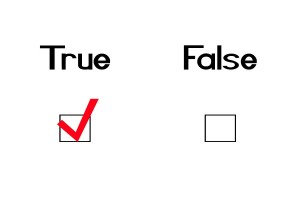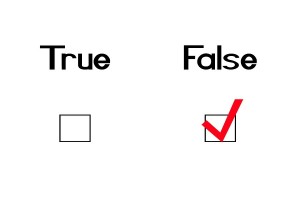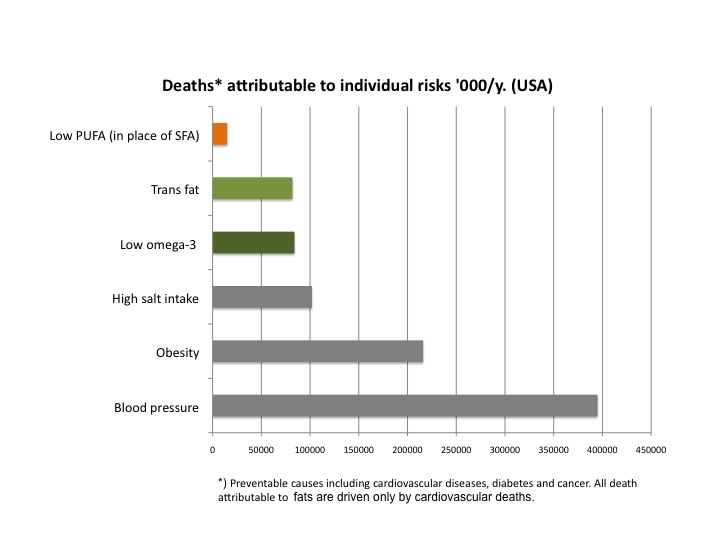A heated discussion arose again yesterday evening regarding the quality of fat and its associations with cardiovascular health. MOT, a popular Finnish TV documentary, tried to refute the fat theory concept. MOT argued that there is no single piece of evidence demonstrating harms of saturated fat.
The program is based on the two recent meta-analyses by a) Skeaff CM & Miller J 2009 and b) Siri-Tarino et al. 2010; see the full refs below. The starting point was that there is no evidence showing that saturated fat is an independent risk factor for cardiovascular disease. The point was later expanded — saturated fat actually protects against strokes and margarine causes heart attacks. Danish doctor Uffe Ravnskov was introduced as an opponent to the fat theory. The defender of the fat theory was the Director General of National Welfare Institute and founder of North Karelia project, Professor Pekka Puska.
The plot of the documentary
The reporter had done his homework very well. I guess he obtained help from someone with keen interest in the subject. The plot of the program was built as follows:
1) Prove the theory on saturated fat as false based on the two recent meta-analyses.
2) Use any evidence, apart from the two core meta-analyses, to support claims on health benefits of saturated fats and risks of margarines (even if these were not conclusions of the core studies).
3) Neglect the fact that neither of the core studies (Siri-Tarino et al and Skeaff & Miller) concluded that saturated fat is beneficial for health or that margarines are hazardous.
4) Neglect the fact that the other meta-analysis (Skeaff CM & Miller J 2009) demonstrated a benefit of substituting saturated fats by polyunsaturated fats.
5) Neglect the recent meta-analysis by Mozaffarian et al. which showed that each 5 % energy of increased PUFA in place of saturated fat resulted in 10 % reduction in coronary heart disease events (Mozaffarian D et al. Effects on Coronary Heart Disease of Increasing Polyunsaturated Fat in Place of Saturated Fat: A Systematic Review and Meta-Analysis of Randomized Controlled Trials. PLoS Medicine. March 23 2010).
This schema worked well (from the reporter’s point of view). Followers of the show got an impression that butter is healthy and margarine is poisonous. There have been sharp contradictions between what is recommended by guidelines and what fat skeptics present. The laypeople are bewildered and after watching the documentary they may be bewildered further more. Thus, I pursue to present my understanding of fats after following the media coverage, recent literature, and online discussions. Here are the claims presented in the program and how I respond to them.
1) Saturated fat is not an independent risk factor for coronary heart disease. True. This is clearly demonstrated in the two core meta-analyses presented.
2) Saturated fat protects from strokes. Yes, partly true. Inverse association was found in two studies presented in Siri-Tarino’s meta-analysis. However, six studies showed no association.
3) There is no evidence whatsoever that saturated fat causes CHD. False. For example, Siri-Tarino’s meta-analysis included several studies that verified the connection. Even more importantly, a systematic review by Mozaffarian et al. 2010 showed that 5% energy substitution of saturated fat by PUFA decreases risk of CHD by 10 %.
4) Diets rich in saturated fats do not raise cholesterol levels. Well, right and wrong. They do raise LDL levels, but they also increase HDL cholesterol. Moreover, the magnitude of LDL’s effect is smaller than often claimed (LDL and HDL both raise c. 10% with very high saturated fat diets, Müller H et al. 2003).
5) Margarines increase risk of cardiovascular events. Yes, this effect is found in a couple of cohort studies. Key studies come from the era when margarine contained much more trans fat than it does currently (Gillman et al. 1997 ja Tevani A et al. 1997). In Europe, margarines typically contain less than 0.5 % trans fats (c. less than half of that in butter). I was surprised that I could not find a single study demonstrating any (outcome) benefit by margarines in CHD.
Other essentials -left out from the program
Trans fat is hazardous — all seem to agree. Skeaff & Miller clearly back this.
Fish fat. Skeaff and Miller’s meta-analysis demonstrates that fish oil is protective against CHD. Omega-3 fatty acids may be more relevant to our cardio health than saturated fats. In his review, Dr. Danaei has put omega-3 fats into perspective. To the US residents, Omega-3 fats are more significant compared to the poor PUFA/SFA ratio and other equally important contributors of premature cardio death such as trans fats. (Danaei et al. 2009)
Monounsaturated fat is possibly neutral to cardiovascular health. Olive oil puzzles the big picture because somecohort studies have shown that olive oil consumption is associated with improved cardio health (Kontagionni et al. 2007). Perhaps antioxidants and polyphenols found in extra virgin olive oil have lead to this conclusion.
Total fat. Total fat is not a risk factor in cardiovascular disease (Skeaff & Miller 2009). In practise this means, low-fat diet does not improve cardio health.
I think this dispute on the health effects of fat is universal. You find the same arguments all over the globe. So, even if you did not see the TV program, these arguments are quite familiar to you. I guess the recent discussions and meta-analyses have taught us all something. For me, the biggest take home messages so far have been the following:
1) Fish fat is still beneficial for cardiovascular health
2) Saturated fat is neutral in terms of CHD
3) Increasing PUFA consumption in place of SFA decreases the risk of CHD, but the effect is not dramatic
4) There is no evidence that margarine is protective against CHD
5) Trans fat is harmful to cardiovascular health
6) Low-fat diet does not protect from CHD
Saturated fat is not a demon it used to be, even if substitution to PUFAs brings some additional benefit in terms of coronary heart disease. Regarding strokes saturated fat can even be slightly protective. So, my understanding on saturated fats has changed. What are your key learnings?
A hint: Check the table 4 in Skeaff & Miller meta-analysis to get a quick glance on this complicated matter. p. 192
References:
Siri-Tarino PW et al. Meta-analysis of prospective cohort studies evaluating the association of saturated fat with cardiovascular disease. AJCN Am J Clin Nutr (January 13, 2010). doi:10.3945/ajcn.2009.27725
Skeaff CM and Miller J. Dietary Fat and Coronary Heart Disease: Summary of Evidence from Prospective Cohort and Randomised Controlled Trials. Ann Nutr Metab 2009;55:173–201. DOI: 10.1159/000229002 Published online: September 15, 2009



